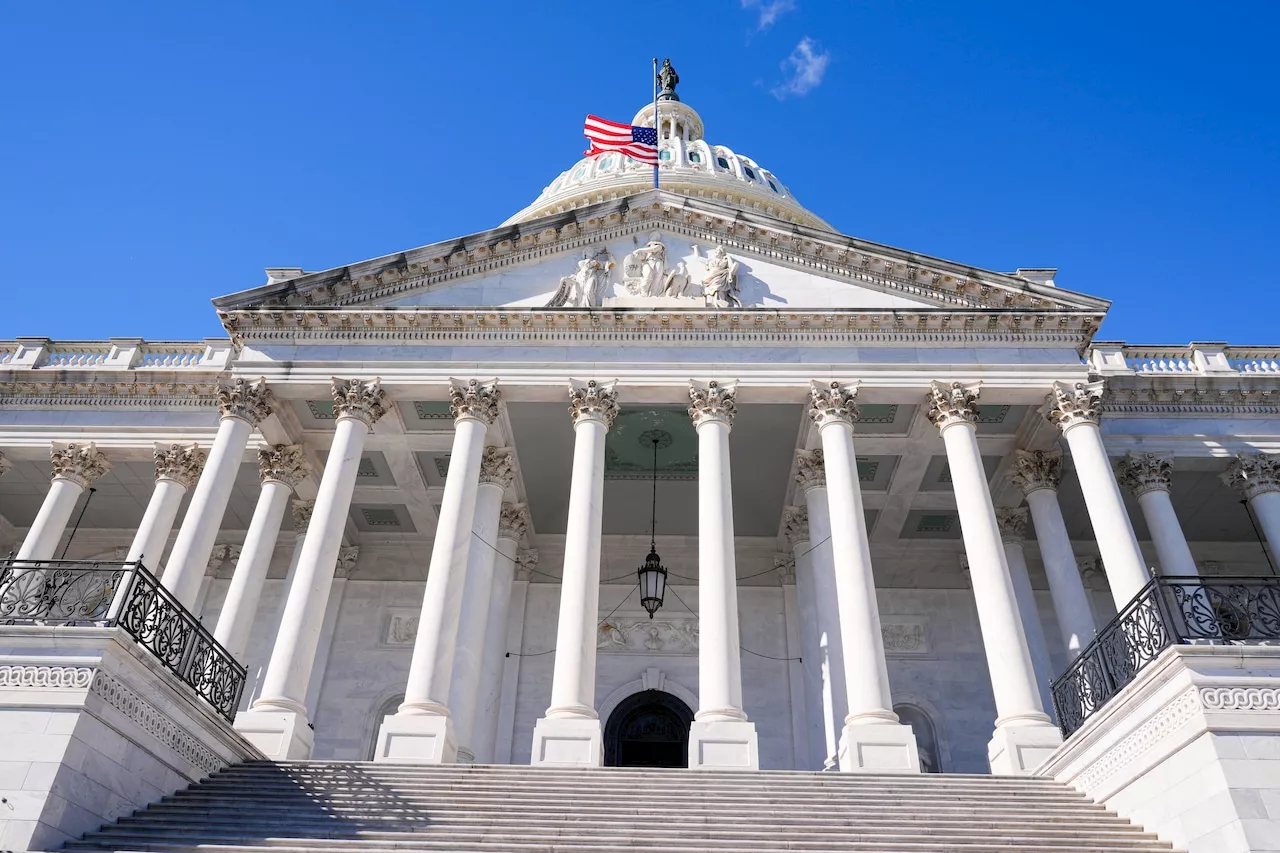Politics
Senate Approves Compromise to End Government Shutdown, Funding Uncertain

The U.S. Senate has voted to advance a compromise aimed at ending the government shutdown, which has lasted for over a month. On November 6, 2025, the Senate approved the deal with a vote of 60-40, following a series of negotiations that involved moderate Democrats who agreed to proceed without a firm extension of health care subsidies, a decision that has sparked discontent among some party members.
The agreement, reached by a group of moderate Democrats, includes short-term funding for the government until late January and a commitment to revisit the issue of extending Affordable Care Act tax credits in mid-December. This provision has been a point of contention, as many Democrats have been advocating for a guarantee of these subsidies, which are set to expire on January 1, 2026.
In the vote, Senate Democratic leader Chuck Schumer opposed the measure, reflecting concerns from within his party. He stated he could not support a deal that did not adequately address health care needs, particularly after a prolonged stalemate that saw Democrats voting repeatedly against government reopening. Schumer insisted that the party has “sounded the alarm” on health care issues, emphasizing the urgency of the situation.
The compromise was spearheaded by former governors and Senators Jeanne Shaheen, Maggie Hassan, and Angus King, who played a critical role in breaking the deadlock. Their decision to support the spending package came after extensive discussions with Republican leaders, including Senate Majority Leader John Thune, who quickly endorsed the proposal and called for an immediate vote to progress the funding measures.
While some Democrats anticipated broader support within their ranks, only five joined the moderates in favor of the deal. This included Senators Tim Kaine from Virginia and John Fetterman from Pennsylvania. The final vote was briefly delayed due to discussions among some conservative Republicans, but they ultimately backed the agreement after consultations with former President Donald Trump, who suggested that the shutdown might soon come to an end.
The repercussions of the shutdown have been significant. Many federal workers have faced financial uncertainty, and provisions in the compromise aim to restore back pay for those affected. The package also addresses the mass firings initiated by the previous administration, ensuring that impacted workers will be reinstated.
Despite the progress made, the path ahead remains complex. House Speaker Mike Johnson has expressed reluctance to bring the health care subsidy issue to a vote in the House, complicating efforts to secure a comprehensive solution. Some Republicans have indicated a willingness to discuss extending tax credits, but they seek to impose new limitations on eligibility, raising concerns among Democrats about the potential impact on families relying on these benefits.
The tension within the Democratic caucus is palpable, with members like Representative Greg Casar of Texas condemning the lack of a firm health care commitment as a “betrayal.” Others, including Senator Bernie Sanders, have voiced strong opposition to the compromise, characterizing it as a significant retreat from the party’s objectives.
As the Senate prepares for the mid-December vote on health care subsidies, the future of the agreement—and the fate of countless federal workers—hangs in the balance.
-

 Politics2 weeks ago
Politics2 weeks agoHamas Chief Stresses Disarmament Tied to Occupation’s End
-

 Science2 weeks ago
Science2 weeks agoOhio State Study Uncovers Brain Connectivity and Function Links
-

 Entertainment2 weeks ago
Entertainment2 weeks agoMegan Thee Stallion Exposes Alleged Online Attack by Bots
-

 Science4 weeks ago
Science4 weeks agoResearchers Challenge 200-Year-Old Physics Principle with Atomic Engines
-

 Entertainment2 weeks ago
Entertainment2 weeks agoPaloma Elsesser Shines at LA Event with Iconic Slicked-Back Bun
-

 Top Stories2 weeks ago
Top Stories2 weeks agoFederal Agents Detain Driver in Addison; Protests Erupt Immediately
-

 Business2 weeks ago
Business2 weeks agoHome Depot Slashes Prices on Halloween Favorites Up to 75%
-

 Top Stories2 weeks ago
Top Stories2 weeks agoOrioles Hire Craig Albernaz as New Manager Amid Rebuild
-

 Entertainment2 weeks ago
Entertainment2 weeks agoSyracuse Stage Delivers Lively Adaptation of ‘The 39 Steps’
-

 Business2 weeks ago
Business2 weeks agoMotley Fool Wealth Management Reduces Medtronic Holdings by 14.7%
-

 Top Stories2 weeks ago
Top Stories2 weeks agoWill Smith Powers Dodgers to World Series Tie with Key Homer
-

 World3 weeks ago
World3 weeks agoGlobal Military Spending: Air Forces Ranked by Budget and Capability









